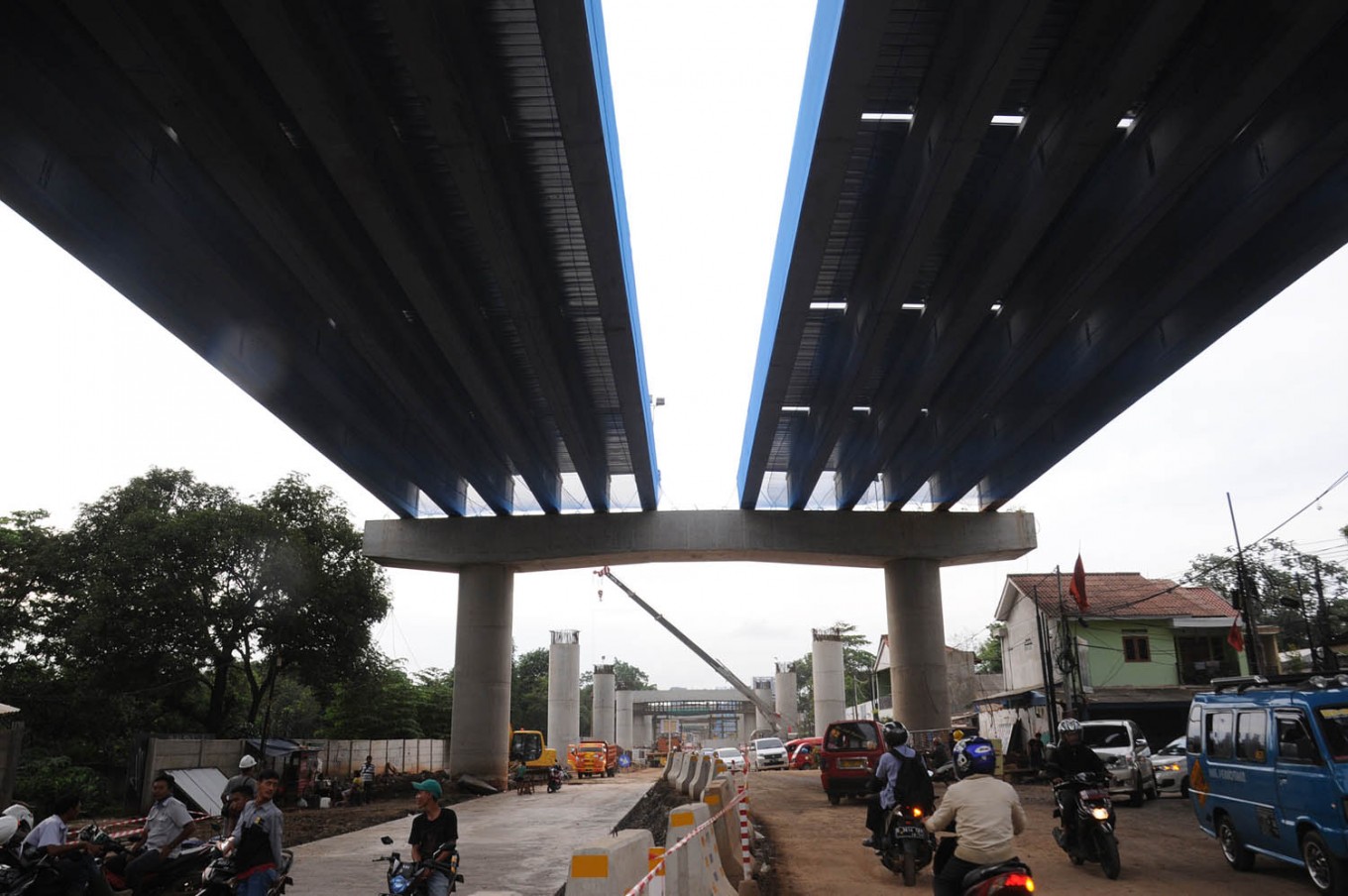Popular Reads
Top Results
Can't find what you're looking for?
View all search resultsPopular Reads
Top Results
Can't find what you're looking for?
View all search resultsKadin calls on govt to tackle SOEs’ control in construction
Change text size
Gift Premium Articles
to Anyone
 Vehicles pass below section 1 of the Depok-Antasari (Desari) toll road in Jakarta on April 1. Indonesian Chamber of Commerce and Industry (Kadin) deputy chairman for infrastructure and construction Erwin Aksa said the potential value of infrastructure development based on ASEAN’s blueprint was predicted to reach US$3.3 trillion, with a half of it located in Indonesia. However, private companies only hold around 10 percent of the construction market. (ANTARA FOTO/Indrianto Eko Suwarso)
Vehicles pass below section 1 of the Depok-Antasari (Desari) toll road in Jakarta on April 1. Indonesian Chamber of Commerce and Industry (Kadin) deputy chairman for infrastructure and construction Erwin Aksa said the potential value of infrastructure development based on ASEAN’s blueprint was predicted to reach US$3.3 trillion, with a half of it located in Indonesia. However, private companies only hold around 10 percent of the construction market. (ANTARA FOTO/Indrianto Eko Suwarso)
I
ndonesian Chamber of Commerce and Industry (Kadin) has called on the government to involve more private contractors in national-scale projects to curb the domination of state-owned enterprises (SOEs) in the industry.
Kadin deputy chairman for infrastructure and construction Erwin Aksa said the potential value of infrastructure development based on ASEAN’s blueprint was predicted to reach US$3.3 trillion, with a half of it located in Indonesia. Hence, it could pave the way for private contractors to be the engines of the country’s economy.
“Don’t let private contractors be left behind and only become the spectators of development. If big SOEs could mentor and cooperate with small private companies, I am sure those private companies will be big in another five or 10 years,” he said in Jakarta on Wednesday.
To boost the economy, Indonesia needs Rp 5.5 quadrillion in investment for infrastructure projects in five years, according to the 2015-2019 National Mid-Term Development Plan (RPJMN) released by the National Development Planning Board (Bappenas).
To improve the capacity building of small and medium enterprises (SMEs) in the construction sector, the Public Works and Public Housing Ministry has banned big contractors and SOEs from carrying out state projects valued at less than Rp 50 billion.
“The problem is, SOEs often have their own subsidiaries as the subcontractors involved in regional development. The portion of private regional contractors is less than 10 percent [of the total market]. Ideally, it should up by 20 percent,” Indonesian Builders Association (Gapensi) chairman Iskandar Z. Hartawi said.
Ministry secretary-general Taufik Widjoyono has recognized the problem and urges SOEs to cooperate with private companies to manage state projects. “We have to build synergy with private companies,” he said.
Meanwhile, Erwin also called on the government to centralize infrastructure and construction development projects at the ministry, as many projects managed by other ministries had been neglected.
“Talking about infrastructure means electricity, trains, ports, airports and others that are in the domains of other ministries. I hope there will be one body that manages all infrastructure development in the country,” he said.
Erwin referred to the Hambalang project, which began development in 2010 managed by the Youth and Sports Ministry. It was halted in 2013 due to a corruption case. “The Hambalang project was managed by a ministry that did not understand the technical matters on the field,” he said. (vps/ags)









